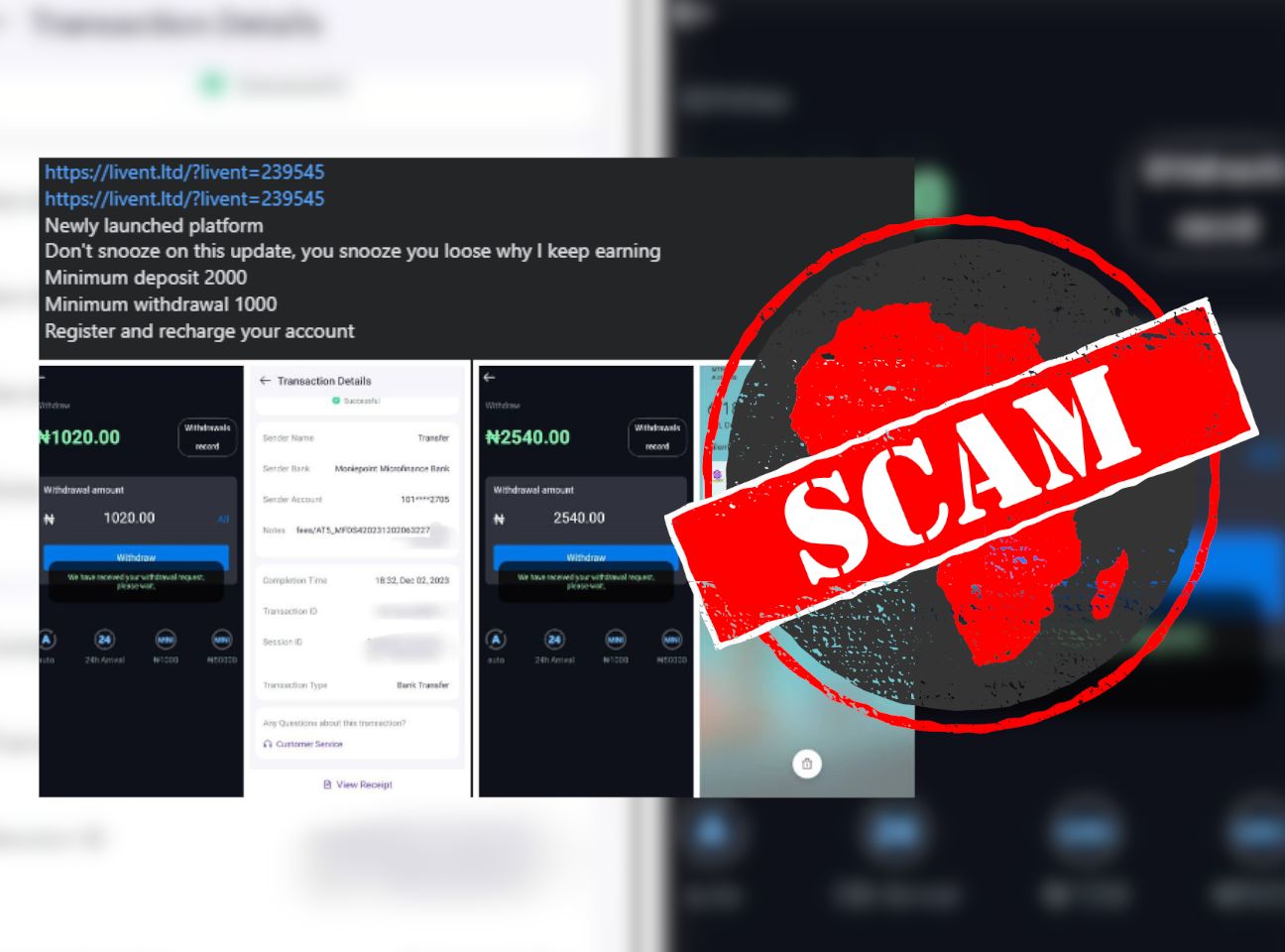IN SHORT: Claims about the “Livent Investment Platform” and its outsized returns have been making the rounds on WhatsApp and Facebook in Nigeria. But it looks like yet another scam.
Some Nigerians have been punting an investment platform called Livent online. The platform claims to use lithium technology to make people's lives easier, but it’s unclear just how the technology comes into play here.
According to Facebook posts the platform can double your money within 24 hours.
Other posts promise a minimum daily return of 1,000 naira for a minimum investment of 4,000 naira.
“I registered with liveth yesterday with just 4k between 24hrs I have seen my investment. Join me to enjoy this investment while it lasts. If you're interested DM [direct message],” reads a post on Facebook.
We found similar posts on Facebook here, here, here, here and here. They have also been shared on WhatsApp. They all include a link where people can apparently sign up.
But is the investment platform legitimate? We checked.

Livent shows signs of being a scam
You can’t click through to the link though, as it has been flagged as risky by web security companies such as Cloudflare. This is a red flag, and unlikely for a genuine and safe investment platform.
The Corporate Affairs Commission registers companies in Nigeria. We did not find Livent after a search, as would be expected for a public investment platform.
Africa Check also looked for user reviews of the platform. On the consumer website ScamAdviser, it has a low trust rating, of 21 out of 100.
Hustle and Bustle, a financial review and tutorial website, reviewed the Livent platform and said it could be short lived and gave a number of reasons why.
The daily return offered by Livent to Nigerians also seems too good to be true.
Some users of the platform have expressed concern on Facebook, asking questions such as “Is Livent still paying?”.
Others have said that the platform has siphoned off their money.
There are many signs that the platform is not to be trusted. For more on how to spot scams on Facebook, read the Africa Check guide here.
Republish our content for free
For publishers: what to do if your post is rated false
A fact-checker has rated your Facebook or Instagram post as “false”, “altered”, “partly false” or “missing context”. This could have serious consequences. What do you do?
Click on our guide for the steps you should follow.
Publishers guideAfrica Check teams up with Facebook
Africa Check is a partner in Meta's third-party fact-checking programme to help stop the spread of false information on social media.
The content we rate as “false” will be downgraded on Facebook and Instagram. This means fewer people will see it.
You can also help identify false information on Facebook. This guide explains how.




Add new comment